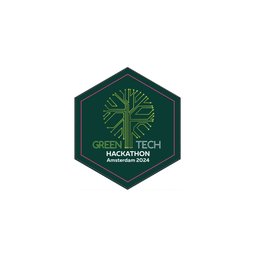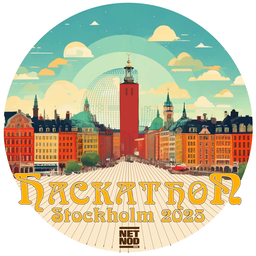RIPE Atlas anchors is transitioning from a pilot project to a production service. As such, we want to clarify the terms and conditions that describe the use of the service and spell out both the user's and the RIPE NCC's obligations. Here we present a draft of these documents and ask for feedback, as we want to ensure we keep the community involved in every step of the process.
Introduction
Our goal is to bring RIPE Atlas anchors to production around the RIPE 67 Meeting in Athens in October 2013, when we will announce the final specifications for the new hardware and invite suitable, interested parties to purchase the hardware and host a RIPE Atlas anchor.
While moving towards the production service, we have drafted two documents that apply specifically to RIPE Atlas anchor hosts :
- Draft RIPE Atlas Service Terms and Conditions
- Draft Memorandum of Understanding - Hosting a RIPE Atlas Anchor Probe
Background
The current RIPE Atlas anchors documentation consists of the "Service Rules" used during the pilot project, as well as the description of RIPE Atlas operational practices currently on the website (documented, for the most part, in the Frequently Asked Questions section). At the same time, the most relevant and important aspects of operating as a RIPE Atlas anchor are hidden in the mailing list archives.
For these reasons, we want to clarify the most important aspects, such as rights and obligations, as clearly and succinctly as possible.
- Clarify the mutual responsibilities and expectations between anchor hosts, RIPE Atlas users and the RIPE NCC
- Align this documentation with other legal documents of the RIPE NCC
- Reflect the RIPE NCC's operational practices in the terms and conditions
- Have the documents ready in time for the start of production service
- Keep the lifecycle of the documents open for community input
Structure
The Draft RIPE Atlas Service Terms and Conditions reflect the current operational practices for the use of anchors as probes , while additionally covering liabilities of both the RIPE NCC and RIPE Atlas anchor hosts.
In the Memorandum of Understanding, we also specify target functionality, life-cycle expectations and other anchor-related details.
- Draft RIPE Atlas Anchors Service Terms and Conditions, Version 2.0
- Draft Memorandum of Understanding, Version 2.0
There are several reasons why we have structured things this way:
- With RIPE Atlas anchors, when used as a probe , operational practices are straightforward and simpler than for the "small" probes - for example, all anchoring measurements are public
- Since RIPE Atlas anchors consist of the larger hardware boxes that are also used as regional targets , and since the boxes are purchased by the hosts, the Memorandum of Understanding was additionally needed for RIPE Atlas anchor hosts to specify service requirements and expectations of both parties
- In order to facilitate the natural lifecycle of the documents, we will keep the version number clearly noted in documents and in all communication. We encourage community feedback, and if consensus is received new versions of these documents might be published in the future
Please note that both the Memorandum of Understanding and the RIPE Atlas Anchors Service Terms and Conditions documents are currently only applicable for the RIPE Atlas anchor hosts and not all probe hosts or users.
Timeline
We are asking RIPE Atlas anchor hosts for their feedback on these draft versions, for several reasons:
- We want to keep the community involved in every step of the process
- Current RIPE Atlas anchor hosts are a smaller group, and it is possible to collect their opinion and feedback in a shorter time period
- The new hosts for RIPE Atlas anchors will be asked to agree to these terms when RIPE Atlas anchors becomes a production service, and
- We wanted to progress towards the production service of RIPE Atlas anchors within the time frame we promised, which is around RIPE 67
- In the longer term, we might want to update the documents again, if needed, based on community consensus
To summarise, the timeline is as follows:
- From now until the RIPE 67 Meeting, existing RIPE Atlas anchor hosts and the RIPE Atlas community are asked for feedback about the draft version of the RIPE Atlas Service Terms and Conditions and the Memorandum of Understanding
- The RIPE NCC will then incorporate the feedback received, publish the final version of both documents, and publish details on how to apply to be an anchor host
- At the RIPE 67 Meeting (14-18 October 2013), RIPE Atlas anchors will become a production service and new anchor hosts will be asked to agree to these terms when applying for the anchor
Feedback and Next Steps
If you are interested in hosting a RIPE Atlas anchor in the future, we invite you to take a look at the current draft versions of both the Memorandum of Understanding and the RIPE Atlas Service Terms and Conditions and give us any feedback you have.
We will take your input into consideration and implement any necessary changes before moving on with the production service.
The main discussion about these documents should happen on the MAT Working Group mailing list .
For direct feedback, contact atlas@ripe.net





Comments 2
The comments section is closed for articles published more than a year ago. If you'd like to inform us of any issues, please contact us.
Stuart Ward •
Clause 6.6 why is the term "shall not try to disassemble the Probe" present in the conditions. Aligned with this what is the license of the software on the probe, I presume that the majority of this is under an Open license. I would suggest removing the disassemble wording and linking to the code repository for the probe.
Vesna Manojlovic •
Dear Stuart, Thank you for your feedback! We will consider it together with other comments we received from community members, and will incorporate it in a future version of the Terms and Conditions.